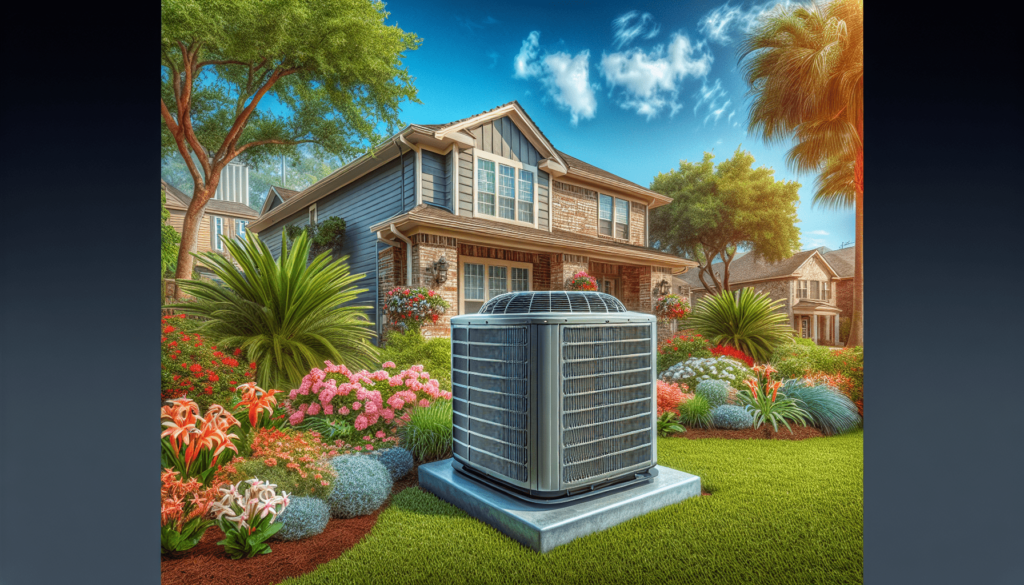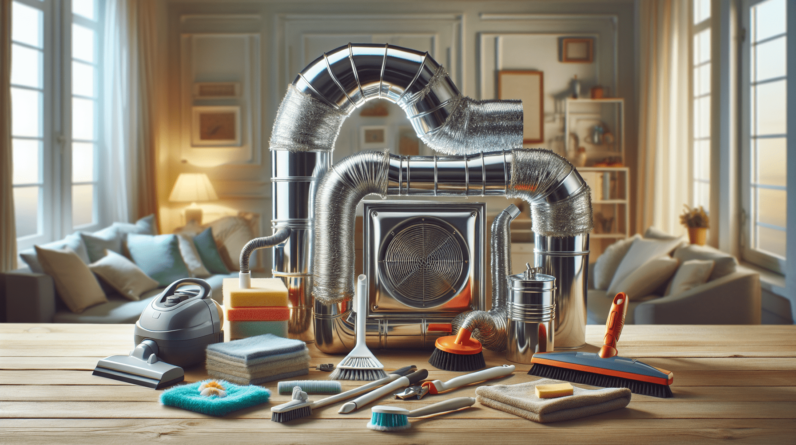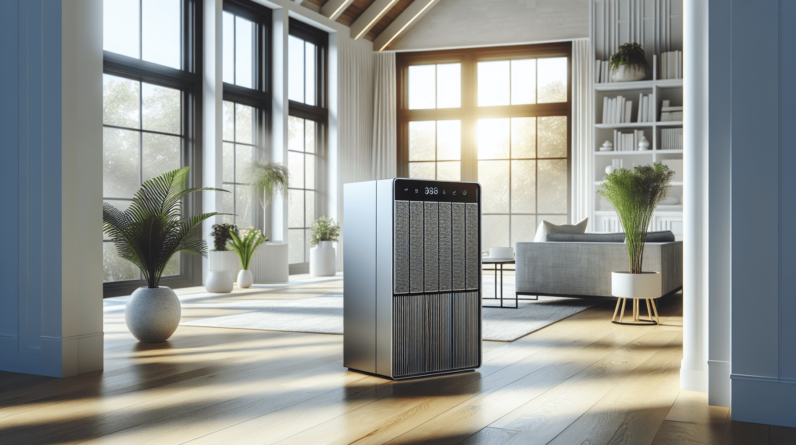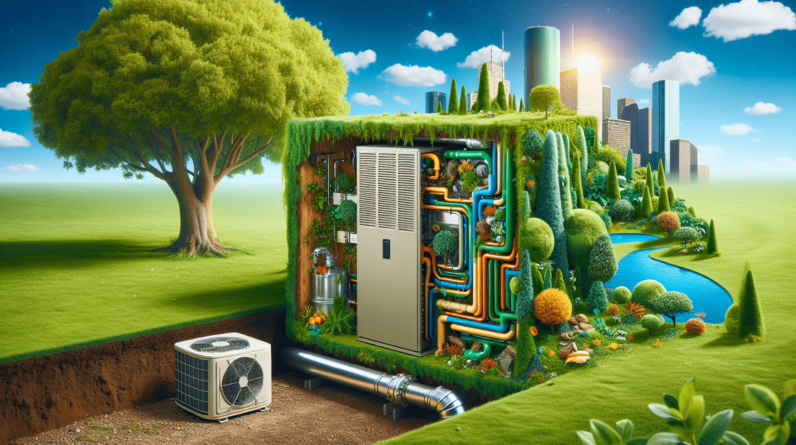

Have you ever found yourself sweating in your own home during the scorching summer heat? Maintaining your HVAC system is crucial, especially in Houston, where the summer temperatures can be relentless. You want to ensure that you stay cool and comfortable while avoiding costly repairs.
Understanding HVAC Systems
Your heating, ventilation, and air conditioning (HVAC) system plays a vital role in maintaining a comfortable living environment. Understanding the basics of how your HVAC system works can empower you to take good care of it.
What is an HVAC System?
An HVAC system typically consists of components that work together to manage indoor air quality and temperature. These components include air conditioners, furnaces, heat pumps, ductwork, and thermostat controls. When these parts function correctly, your home remains comfortable no matter the weather outside.
Why is HVAC Maintenance Important?
Routine maintenance can extend the life of your HVAC system, enhance its efficiency, and save you money on energy bills. Regular upkeep can also prevent unexpected breakdowns when you need your system the most.
Summer HVAC Maintenance Tips
To keep your HVAC running smoothly through the hot summer months, here are some maintenance tips that you should consider.
1. Change or Clean the Air Filters
Air filters play a pivotal role in your HVAC system’s efficiency. A clogged or dirty filter can restrict airflow and lead to inadequate cooling.
- Frequency: Change or clean your air filters every 1 to 3 months.
- Types of Filters: Check your manufacturer’s specifications for the right size and type of filter.
2. Clear the Outdoor Unit
Your outdoor unit, commonly known as the condenser, can easily become obstructed by debris such as leaves, dirt, and grass.
- Maintenance Steps:
- Regularly inspect the area around the outdoor unit.
- Clear away any obstructions that could restrict airflow.
3. Check Thermostat Settings
Ensuring that your thermostat is set correctly can make a huge difference in your system’s performance.
- Smart Thermostats: Consider upgrading to a smart thermostat, which can adjust settings based on your routine and preferences.
- Manual Thermostats: If you still have a manual thermostat, make sure it’s calibrated correctly.
4. Inspect Ductwork
Leaky or dirty ducts can lead to decreased efficiency and higher energy costs. You should check if your ducts need sealing or cleaning.
- Signs of Trouble: Look for visible dust outside the vents or uneven cooling throughout the house.
5. Schedule Professional Maintenance
Regular professional tune-ups can help identify potential problems before they become expensive issues.
- Frequency: Aim for a professional inspection at least once a year, preferably in the spring before the summer heat hits.
- What to Expect: During a tune-up, the technician will check refrigerant levels, clean coils, and inspect electrical components.
Why Houston is Unique
In Houston, the climate plays an essential role in how you maintain your HVAC system. The hot, humid summers can put a strain on your cooling system, making it necessary to adopt specific maintenance practices.
Humidity Challenges
High humidity levels can impact how well your HVAC system dehumidifies the air inside your home. Therefore, ensuring your system is capable of managing humidity is crucial.
- Tips to Consider:
- Invest in a dehumidifier if you find that humidity is a persistent issue.
- Keep gutters clean to prevent water damage to your HVAC unit.
Energy Efficiency
In addition, energy efficiency becomes even more critical when summer temperatures soar. Keeping your system well-maintained can result in significant savings on your utility bills.
- Energy Star: If your system is older, consider investing in an Energy Star-rated replacement.

Common HVAC Issues in Summer
Being aware of common HVAC issues can help you catch problems early. Here are a few issues you might encounter during the summer months.
1. Refrigerant Leaks
Refrigerant is what cools your air, and when there’s a leak, your HVAC system can’t efficiently cool your home.
- Signs of a Leak: If the air blowing from your vents feels warm or if there are ice buildups on the coils, it’s time to call a professional.
2. Electrical Failures
As your HVAC system works overtime in summer, electrical components can fail, leading to system breakdowns.
- Preventive Actions: Make sure to have an annual inspection that focuses on electrical connections and components.
3. Drainage Issues
The air conditioning unit produces condensation, which requires proper drainage. Clogged drain lines or pans can lead to water damage.
- How to Fix: Regularly check the drainage system and clear any blockages.
4. Overheating
If your air conditioner is working too hard, it can overheat and shut down.

- Cooling Tips: Ensure that the thermostat is set properly and that airflow around the unit is unobstructed.
Implementing Energy-Saving Strategies
In addition to maintaining your HVAC system, adopting energy-saving strategies helps keep your home cool while lower your energy bills.
1. Close Blinds and Curtains
Keeping sunlight out during the hottest parts of the day helps maintain a cooler indoor temperature.
2. Use Fans Wisely
Ceiling fans can help circulate cool air, making your home feel more comfortable.
- Rotation: Ensure your fans are rotating counter-clockwise in summer to push cool air down.
3. Seal Windows and Doors
Preventing drafts will help keep your cool air inside and the heat outside.
- Weather Stripping: Apply weather stripping around doors and windows to minimize air leaks.
4. Invest in Insulation
Proper insulation is essential in maintaining a constant temperature. This will also make your HVAC system work more efficiently.
Monitoring Performance
Besides regular maintenance, keep an eye on your HVAC system’s performance throughout the summer. Catching issues early can save you headaches down the line.
1. Listen for Unusual Noises
Strange sounds can indicate mechanical problems. If you hear grinding, squealing, or thumping noise, you should have your system checked out.
2. Feel for Air Temperature Changes
If you notice a significant difference in temperature from one room to another, it could signal ductwork problems or issues with the thermostat.
3. Monitor Utility Bills
If your energy bills are spiking without an increase in usage, it’s time to investigate.
The Importance of Owner Involvement
As a homeowner, you play a crucial role in your HVAC system’s maintenance. Here are some things you can do to contribute positively.
1. Keep a Log
Keeping track of your HVAC’s performance, maintenance, and repairs can help spot trends that may indicate issues.
2. Understand Your System
Read the owner’s manual so you understand your HVAC system’s unique requirements and capabilities. This knowledge can help you identify when something isn’t right.
3. Set Reminders
Set reminders for changing filters, scheduling professional maintenance, or any seasonal tasks.
Partnering with a Professional
While DIY components are important, collaborating with an HVAC professional for regular inspections and maintenance is irreplaceable.
1. Finding a Reputable Technician
Look for certified technicians in your area with good reviews. A reliable technician can catch problems early and keep your system running efficiently.
2. Seasonal Check-ups
Ensure your technician provides seasonal check-ups that include checking and sealing ductwork, cleaning coils, and evaluating overall system performance.
Conclusion
By following these HVAC maintenance tips, you can keep your system running smoothly throughout the hot summer months in Houston, TX. This proactive approach not only improves comfort but also saves you time, money, and the stress of unexpected breakdowns. Start implementing these tips today, and you’ll be grateful when the temperatures rise!






